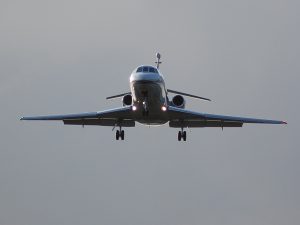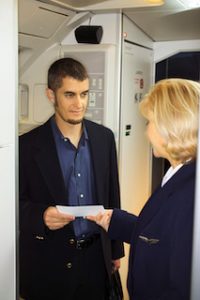The Role of Case Studies in Multi-Crew Cooperation (MCC) Training

In the aviation industry, safety is paramount, and continuous learning is a cornerstone of maintaining and improving safety standards. One of the most effective methods for imparting crucial lessons to pilots is through the analysis of real-life incidents and accidents. During the Multi-Crew Cooperation (MCC) course, discussions of case studies on real-life incidents and accidents play a vital role in enhancing pilot training. This article explores why these case studies are integral to the MCC course, how they contribute to learning from past experiences, and the impact they have on improving safety and operational efficiency in aviation.
Importance of case studies in MCC training
Case studies in MCC training provide pilots with concrete examples of both successful and unsuccessful handling of flight operations. By examining real-life scenarios, pilots can gain insights into the complexities of aviation, the human factors involved, and the critical importance of effective Crew Resource Management (CRM).
1) Real-life context
-
- Concrete examples: Case studies offer tangible examples of incidents and accidents, moving beyond theoretical concepts to real-world applications. This contextual understanding helps pilots grasp the practical implications of CRM and other training components.
- Emotional impact: Learning from real-life incidents often has a stronger emotional impact, which can lead to deeper learning and retention of lessons. Pilots are more likely to remember and apply what they have learned when they understand the real-life consequences of their actions.
2) Multi-dimensional learning
-
- Technical and non-technical skills: Case studies encompass both technical aspects, such as system failures and emergency procedures, and non-technical skills, like communication, teamwork, and decision-making. This comprehensive approach ensures that pilots develop a well-rounded skill set.
- Human factors: Understanding human factors is crucial in aviation. Case studies highlight how human errors, cognitive biases, and interpersonal dynamics can impact flight operations, helping pilots become more aware of these factors and learn how to mitigate them.
Benefits of discussing case studies in MCC training
The discussion of case studies in MCC training offers several key benefits, including the enhancement of situational awareness, improvement of decision-making skills, and promotion of a safety culture within the aviation industry.
1) Enhancing situational awareness
-
- Recognition of warning signs: Case studies often reveal the early warning signs that were missed or ignored. Pilots learn to recognise these signs in their own operations, enhancing their situational awareness and ability to anticipate and prevent potential issues.
- Contextual learning: Situational awareness is not just about recognizing immediate threats but understanding the broader context. By studying past incidents, pilots gain a better appreciation of the interplay between various factors, such as weather conditions, system failures, and human performance.
2) Improving decision-making skills
-
- Analysis of decision points: Case studies provide detailed analyses of key decision points during incidents and accidents. Pilots can examine the rationale behind each decision, understand the alternatives considered, and evaluate the outcomes. This process helps improve their own decision-making skills.
- Critical thinking: Discussing case studies encourages critical thinking and problem-solving. Pilots learn to question assumptions, evaluate evidence, and consider multiple perspectives before making decisions.
3) Promoting a safety culture
-
- Learning from mistakes: Aviation is an industry where learning from mistakes is crucial. Case studies demonstrate that errors can and do happen, even to experienced pilots. By analysing these errors, pilots learn to accept and report their own mistakes, fostering a culture of openness and continuous improvement.
- Sharing knowledge: The collaborative nature of case study discussions promotes the sharing of knowledge and experiences among pilots. This collective learning helps build a stronger, more informed aviation community.
Integrating case studies into MCC training
Integrating case studies into MCC training involves several steps, from selecting relevant incidents to facilitating discussions and debriefings.
1) Selecting relevant case studies
-
- Diverse scenarios: Case studies should cover a wide range of scenarios, including both successful and unsuccessful outcomes. This diversity ensures that pilots are exposed to various challenges and learn from different experiences.
- Recent and historical cases: Including both recent and historical cases helps pilots understand how aviation practices and technologies have evolved. It also demonstrates that lessons from the past remain relevant today.
2) Facilitating discussions
-
- Interactive sessions: Discussions should be interactive, encouraging pilots to engage actively with the material. Facilitators can use questions, role-playing, and simulations to promote participation and critical thinking.
- Encouraging reflection: Pilots should be encouraged to reflect on their own experiences and relate them to the case studies. This personal connection enhances learning and helps pilots internalise the lessons.
3) Conducting debriefings
-
- Structured debriefings: Structured debriefings are essential for reinforcing key lessons. Facilitators should guide the debriefings, summarising the main points, and highlighting the takeaways.
- Feedback and improvement: Debriefings should also provide an opportunity for feedback and improvement. Pilots can discuss what they learned, how they can apply it in their operations, and any areas where they need further training or support.
Long-term impact of case studies on aviation safety
The long-term impact of incorporating case studies into MCC training extends beyond individual pilots to the broader aviation industry. By learning from past incidents and accidents, the industry can enhance safety, improve training programs, and foster a culture of continuous learning.
1) Enhancing safety standards
-
- Proactive safety measures: Case studies help identify trends and recurring issues, allowing the industry to implement proactive safety measures. This can include changes to procedures, updates to training programs, and improvements in aircraft design.
- Regulatory changes: Insights from case studies often lead to regulatory changes aimed at enhancing safety. Regulatory bodies use these lessons to update guidelines, standards, and requirements for pilots and airlines.
2) Improving training programs
-
- Continuous improvement: Case studies provide valuable feedback for continuous improvement of training programs. They highlight areas where additional training is needed and help develop more effective training methods
- Customisation and relevance: Training programs can be customized based on the lessons learned from case studies. This ensures that the training remains relevant and addresses the current challenges faced by pilots.
3) Fostering a culture of continuous learning
-
- Encouraging reporting and transparency: A culture that encourages reporting and transparency is essential for continuous learning. Case studies demonstrate the value of reporting incidents and sharing knowledge to prevent future accidents.
- Promoting lifelong learning: The aviation industry values lifelong learning. By continuously analysing past incidents and integrating these lessons into training, the industry promotes a culture of ongoing education and professional development.
Conclusion
The discussion of case studies on real-life incidents and accidents is a fundamental component of the Multi-Crew Cooperation (MCC) course. These case studies provide pilots with invaluable insights into the complexities of flying.










